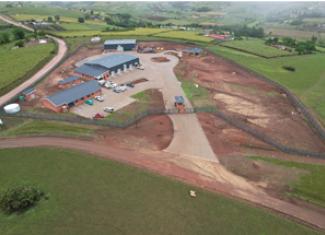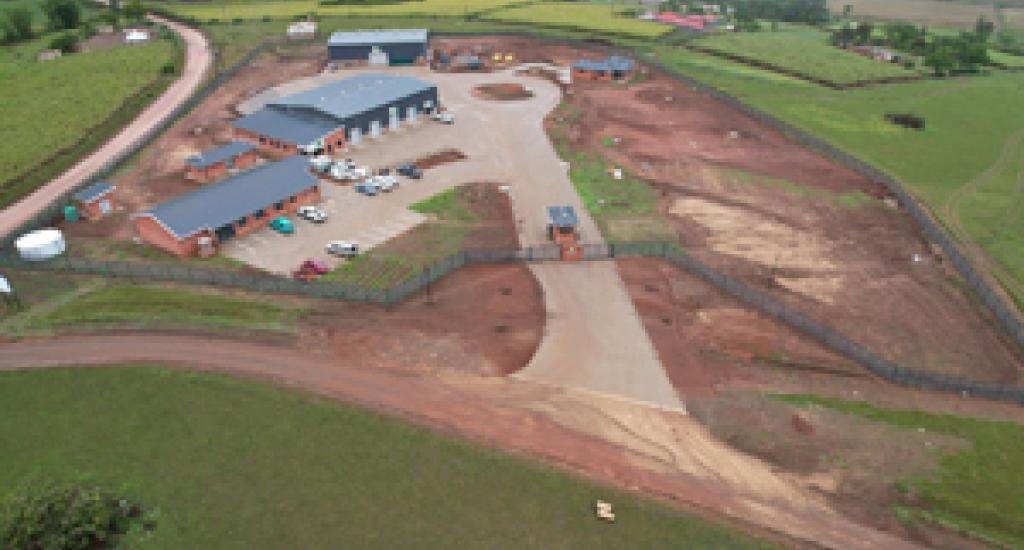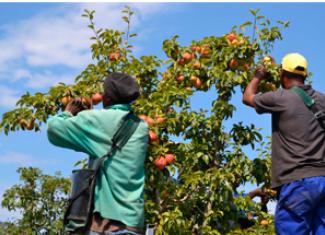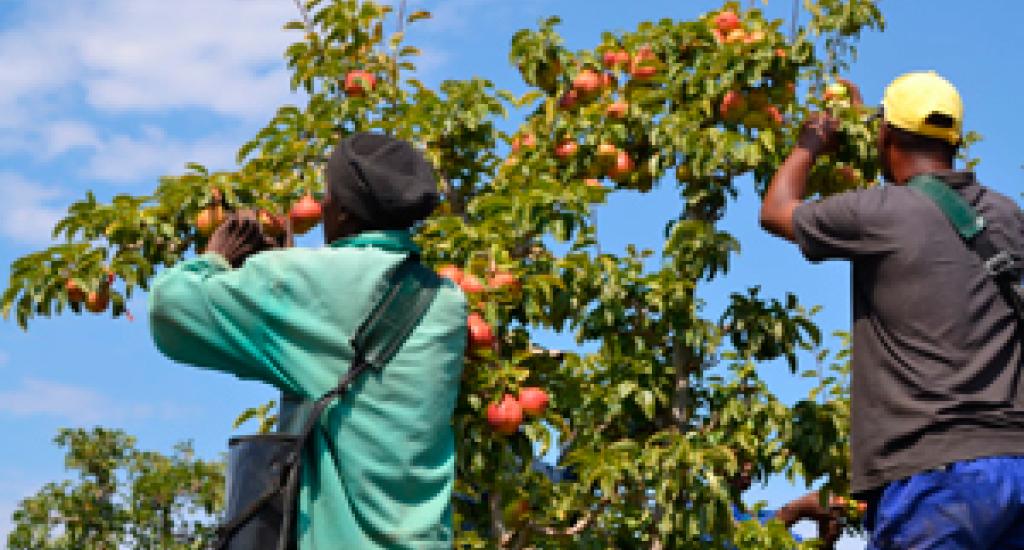Commissioner Ntuli tackles
land rights, food security and national preventative mechanism

Commissioner Philile Ntuli of the South African Hu- man Rights Commission (SAHRC) has expressed concern over the recent misrepresented narrative surrounding land and human rights issues in South Africa. She described it as unfortunate, filled with fear and lacking the historical context necessary to fully understand the Expropriation Act of 2024.
Her sentiments follow the recent signing into law of the Expropriation Act of 2024, which repeals the pre-democratic Expropriation Act of 1975 and sets out how organs of State may expropriate land in the public interest for varied reasons.
“The misrepresentation takes away from the true essence of why we are doing this as a country, and it also creates a false misrepresented narrative to the rest of the world, which is a narrative filled with fear,” she said.
In wide-ranging interview with Public Sector Manager magazine during Human Rights Month, the Commissioner touched on the work done in her focal areas – land rights, food security and national preventative mechanism (NPM).
She emphasised the importance of confronting the historical legacy of dispossession, while also recognising the progress the State has made in addressing human rights issues.
“We are experiencing the moment of historical political reckoning... a grave injustice happened because of apartheid, and that grave injustice that occurred from 1913 gave birth to multiple other pieces of legislation that sought to enforce [the] Group Areas Act, a series of laws in South Africa that enforced racial segregation during apartheid,” she argued.
Ntuli is of the view that this was done with the intention to kill the spirit of black people through the dispossession of land, confining citizens into townships and reserves, and today the majority of citizens still live in townships and informal settlements.
“These are the legacies of landlessness and land disposition. The land reform projection as a whole is important. Expropriation of land with or without compensation adds on the ongoing process of the land reform project. It does not exist on its own,” she explained.
Ntuli joined the SAHRC in 2021 as one of the eight commissioners. Each commissioner is assigned specific focal areas and a province, with Ntuli being allocated KwaZulu-Natal. Since 2024, her focal areas have included land rights, the NPM and food security.
Land rights
The Commisioner said the SAHRC plays a crucial role in the land discourse, and that it is impossible to speak about any of the rights enshrined in the Bill of Rights without speaking about access to land.
“If you talk about food, it is a matter of land. If I do not have land to plant food it means I cannot have food unless I have a job that gives me an income so that I can buy food,” she added.
Without land, it is also difficult to have access to other resources such as water and housing. As such, Ntuli argues that land is a central component of the attainment of socio- economic rights, including the right to a clean environment.
The SAHRC is actively engaging in ongoing discussions about accountability with branches of the State, including the National Executive, the Judiciary, Parliament, as well as the media and civil society. The commission poses critical questions to the State about the extent to which it has fulfilled its mandate, particularly in relation to land reform and the delivery of justice around this area.
“We also look at the gaps and challenges that hinder the State from fulfilling its obligations. We have often neglected the local government space. Local municipalities own a lot of land, including farms, as a matter of history, particularly pre-1994, many of the farms that were owned by local government were issued on 99-year leases, very cheaply,” she explained.
As a result, the commission is focusing on investigating those who hold leases from pre-1994, many of whom continue to enjoy these privileges. The investigation aims to determine how much land municipalities own, how much of that land is leased out, who it is leased out to and the demographics of those leasing the land.
“We recently issued a correspondence with the Minister of Cooperative Governance and Traditional Affairs regarding these questions, for all of the 144 municipalities across the country, so that we can have a land audit of sorts,” she said.
Food security
Ntuli emphasised that the issue of food security and the provision of food remains deeply intertwined with race and class in South Africa, pointing out the fact that a particular racial demographic continues to dominates the agricultural sector in a very imbalanced way – perpetuates inequalities in access to food and resources.
“Less than 15 or 20% of the agricultural industry is owned by people of African descent in South Africa. These are challenging realities in the country,” she said.
The State has an obligation to ensure that no one is deprived of their right to food. Ntuli’s office raises key questions about not only access to food but also the quality of the food that citizens are being exposed to.
She highlighted that the country currently relies on highly hazardous pesticides to sustain the agricultural industry, which may have an impact on the safety of the food produced.
She noted that in 2024 alone, more than 20 children were re- ported to have died from what was initially called foodborne illness. However, after investigations and autopsies, it was revealed that their deaths were not caused by food poisoning but by terbufos – a chemical compound used in insecticides and nematicides.
The commission has been closely examining the nature of this terbufos, investigating how it related to food, and determining how people are coming into contact with it. Recent findings have revealed that people in townships and informal settlements use the chemical to kill rats. Ntuli said this is mainly due to “environmental racism, which is defined as the exposure of particular communities to an environment that is not clean or healthy, breeds an infestation of rats and other sanitory conditions that force people to use mechanism such as terbufos to kill rats”.
The SAHRC recently engaged with the Portfolio Committee on Agriculture and urged the State to institute an immediate ban on terbufos and hazardous pesticides, to prevent further deaths.
Preventing torture
Ntuli’s third focal point – the NPM – addresses the State’s obligation to prevent torture. The United Nations Convention against Torture and Other Cruel, Inhuman or Degrading Treatment or Punishment places responsibility on state parties to implement effective legislative, administrative, judicial and other measures to prevent acts of torture within their respective jurisdiction.
The convention further prohibits the State from expelling, returning or extraditing a person to another state, where they are likely to be subjected to torture.
The NPM focuses on institutions where liberty is deprived, such as correctional centres, police stations and cells, psychiatric institutions, places for youth in conflict with the law, old age homes, and any other facilities, where people are admitted and cannot leave at their free will. These institutions are where individuals are most vulnerable to torture.
“We visit these institutions and assess the conditions of those who are housed within these institutions and their caregivers. We engage with them about their conditions, we assess the conditions, their access to socio-economic rights, including enough water and food, and we also question whether torture is taking place in the facilities,” she added.
To fulfill this mandate, the SAHRC works with the Judicial Inspectorate for Correctional Services, the Independent Police Investigative Directorate, the Office of the Health Ombud and the Office of the Military Ombud.
In December 2024, the commission was officially designated as South Africa’s NPM but that does not absolve it from working with the organisations mentioned above.






